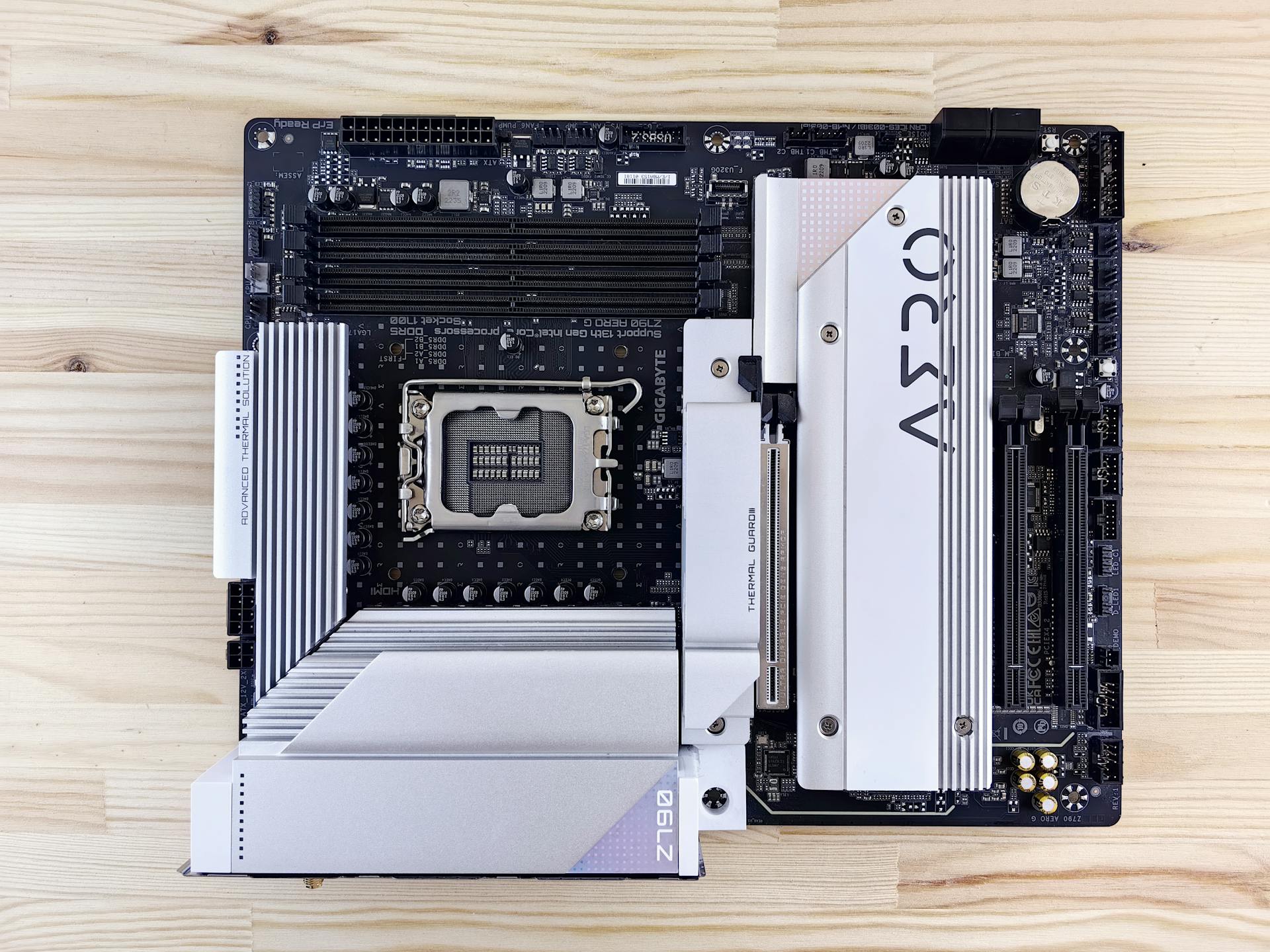
Computer science and engineering are two closely related fields that are revolutionizing the way we live and work. Computer science is the study of the theory, design, development, and testing of computer systems, whereas computer engineering is the application of engineering principles to design and develop computer systems.
Computer science encompasses a broad range of topics, including algorithms, data structures, computer architecture, and software engineering. These topics are crucial for the development of efficient and effective computer systems.
Computer engineering, on the other hand, focuses on the design and development of computer hardware and software systems. This field requires a deep understanding of both computer science and engineering principles.
The intersection of computer science and engineering has given rise to some of the most innovative technologies of our time, including artificial intelligence, robotics, and the internet of things.
Worth a look: Software Design and Development
Computer Science and Engineering
Computer Science and Engineering is a broad field that encompasses various areas, including software engineering, data systems, and computational science. It's a field that's constantly evolving, with new technologies and innovations emerging all the time.
One of the key areas of focus in Computer Science and Engineering is software engineering, which involves the development, testing, and maintenance of software systems. This includes courses in software engineering (CSCI 5801, 5802) that focus on the processes, methodologies, and techniques used for developing complex software systems.
Some of the key skills and themes in Computer Science and Engineering include software engineering theory and practice, database theory, and data engineering. You can see some of the specific courses that cover these topics in the list below.
- CSCI 5801 - Software Engineering I (3 cr)
- CSCI 5802 - Software Engineering II (3 cr)
- CSCI 5708 - Architecture and Implementation of Database Management Systems (3 cr)
Whether you're interested in developing software systems, working with databases, or exploring the latest technologies in computational science, Computer Science and Engineering has something to offer. With a strong foundation in computer science and engineering, you'll be well-equipped to tackle a wide range of challenges and pursue a variety of career paths.
Data Structures and Algorithms
Data structures and algorithms are the building blocks of computer science, and understanding them is crucial for any aspiring engineer.
Data structures are used to organize and store data in a way that makes it easy to access and manipulate.
A good data structure can make a huge difference in the efficiency of a program, allowing it to run faster and use less memory.
Some common data structures include arrays, linked lists, stacks, and queues.
Here's a quick rundown of some common data structures:
Algorithms, on the other hand, are the step-by-step procedures for solving a problem or performing a computation.
The efficiency of an algorithm is often measured in terms of its time and space complexity, with O(n) being a common notation for describing the time complexity of an algorithm.
Analysis of algorithms is a crucial aspect of computer science, as it helps us understand the performance of different algorithms and choose the most efficient one for a particular problem.
Additional reading: Dining Philosophers Problem
Modeling Biological Systems
Modeling Biological Systems is a rapidly evolving field that's making waves in the world of computer science and engineering. MIT engineers have developed a new approach to modeling complex biological systems.
Expand your knowledge: Machine Learning Facial Recognition Security and Surveillance Systems
This approach could help researchers glean insights from genomic data and other huge datasets. It's a game-changer for scientists who need to make sense of massive amounts of information.
With this new model, researchers can finally tackle the complexity of biological systems and uncover hidden patterns and relationships. This could lead to breakthroughs in fields like medicine and biotechnology.
By leveraging the power of computer science and engineering, we can develop more accurate and efficient models of biological systems. This, in turn, can help us better understand the intricacies of life itself.
For more insights, see: Comp Sci Help
Nanoscale Transistors Could Enable More Efficient Electronics
Nanoscale transistors are a game-changer for electronics efficiency.
Researchers are leveraging quantum mechanical properties to overcome the limits of silicon semiconductor technology. This means we can expect even more powerful and efficient electronics in the future.
The current limits of silicon semiconductor technology are being pushed to the side by these innovative transistors. They're smaller, faster, and more efficient.
Quantum mechanics is the key to unlocking this potential. By harnessing its properties, researchers can create more efficient electronics that use less power.
These advancements could lead to more powerful devices that consume less energy. That's a win-win for our planet and our pockets.
For another approach, see: Quantum Machine Learning Algorithms
Fields
Computer science spans a range of topics from theoretical studies of algorithms and the limits of computation to practical issues of implementing computing systems in hardware and software.
The Computing Sciences Accreditation Board identifies four areas crucial to the discipline of computer science: theory of computation, algorithms and data structures, programming methodology and languages, and computer elements and architecture.
Theory of computation, for instance, is a fundamental area of computer science that deals with the limits of computation and the resources required to solve problems.
Algorithms and data structures, on the other hand, are essential for solving problems efficiently and effectively in computer science.
Programming methodology and languages, as well as computer elements and architecture, are also critical areas of computer science that enable the development of computing systems.
Some important areas of computer science, as identified by the Computing Sciences Accreditation Board, include software engineering, artificial intelligence, computer networking and communication, database systems, parallel computation, distributed computation, human–computer interaction, computer graphics, operating systems, and numerical and symbolic computation.
For another approach, see: Cs Theory
Here are some key areas of computer science, grouped by category:
- Software Engineering: CSCI 5801 - Software Engineering I, CSCI 5802 - Software Engineering II
- Artificial Intelligence: CSCI 5521 - Introduction to Machine Learning, CSCI 5523 - Introduction to Data Mining
- Computer Networking and Communication: INET 4061 - Introduction to Data Warehousing, INET 4710 - Big Data Architecture
- Database Systems: CSCI 4707 - Practice of Database Systems, CSCI 5708 - Architecture and Implementation of Database Management Systems
- Parallel Computation: CSCI 5751 - Big Data Engineering and Architecture
- Distributed Computation: CSCI 5751 - Big Data Engineering and Architecture
- Human–Computer Interaction: CSCI 5115 - User Interface Design
- Computer Graphics: Not explicitly mentioned in the provided article sections
- Operating Systems: CSCI 5103 - Operating Systems
- Numerical and Symbolic Computation: Not explicitly mentioned in the provided article sections
Student Opportunities
As a student in the Computer Science and Engineering program, you'll have the chance to join the Cyber Defense Team, which is a great way to enhance your knowledge and college experience.
Our professors are great mentors with a strong desire to see you succeed long after graduation.
History
The history of computer science and engineering is a rich and fascinating one. It all began with the invention of the first computer, Charles Babbage's Difference Engine, in the early 19th century.
The first computer program was written by Ada Lovelace, daughter of Lord Byron, in 1843 for Babbage's proposed mechanical general-purpose computer, the Analytical Engine.
Charles Babbage's work laid the foundation for the development of modern computers, but it wasn't until the 20th century that computer science and engineering began to take shape as a distinct field.
Alan Turing's theoretical work on the concept of the universal Turing machine in the 1930s and 1940s is considered a major milestone in the history of computer science.
You might enjoy: How Does Ai Detection Software Work
The development of the first electronic computer, ENIAC, in the 1940s marked the beginning of the modern computer era.
Computer science and engineering as we know it today began to take form in the 1950s and 1960s with the development of the first programming languages and the creation of the first computer hardware and software companies.
A unique perspective: Code First Girls
Etymology and Scope
The term "Computer Science and Engineering" has its roots in the early 20th century, when pioneers like Alan Turing and Claude Shannon laid the foundation for the field.
Computer Science and Engineering is a multidisciplinary field that combines computer science, mathematics, and engineering principles to design, develop, and test software, hardware, and systems.
The field has evolved significantly since its inception, with the first electronic computers being developed in the 1940s and 1950s.
Computer Science and Engineering involves the use of algorithms, data structures, and software engineering techniques to solve real-world problems.
The scope of Computer Science and Engineering is vast, encompassing areas such as artificial intelligence, machine learning, cybersecurity, and human-computer interaction.
Computer Science and Engineering graduates are in high demand, with applications in a wide range of industries, from tech and finance to healthcare and education.
The field continues to grow and evolve, with new technologies and innovations being developed at a rapid pace.
Computer Science and Engineering is an exciting and rewarding field that requires a strong foundation in mathematics, science, and engineering principles.
Theory of Computation
The theory of computation is a fundamental area of computer science that deals with understanding what can be computed and the resources required to do so. It's a vast field that explores the limits of computation.
Computability theory examines which computational problems are solvable on various theoretical models of computation. This is crucial in determining what can be automated.
One of the most famous open problems in the theory of computation is the P = NP? problem, which has been a challenge for many years. It's a problem that has significant implications for cryptography and optimization techniques.
The theory of computation is also closely related to automata theory, which studies the behavior of abstract machines. This is essential in understanding how to design and analyze algorithms.
Here's a brief overview of the key areas in the theory of computation:
These areas are just a few of the many that make up the theory of computation. Understanding these concepts is essential for designing and analyzing efficient algorithms and solving complex computational problems.
Sources
- https://wwwcp.umes.edu/cset/
- https://cse.umn.edu/cs/cse-computer-science-bs-tech-electives-overview-and-interest-areas
- https://news.mit.edu/topic/computers
- https://www.rose-hulman.edu/academics/academic-departments/computer-science-software-engineering/majors-and-minors.html
- https://en.wikipedia.org/wiki/Computer_science
Featured Images: pexels.com


